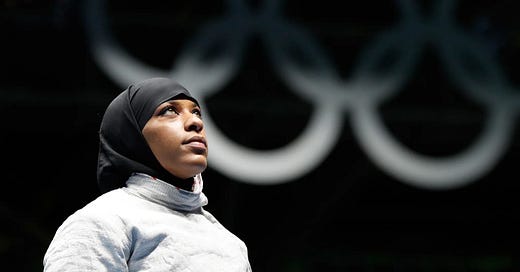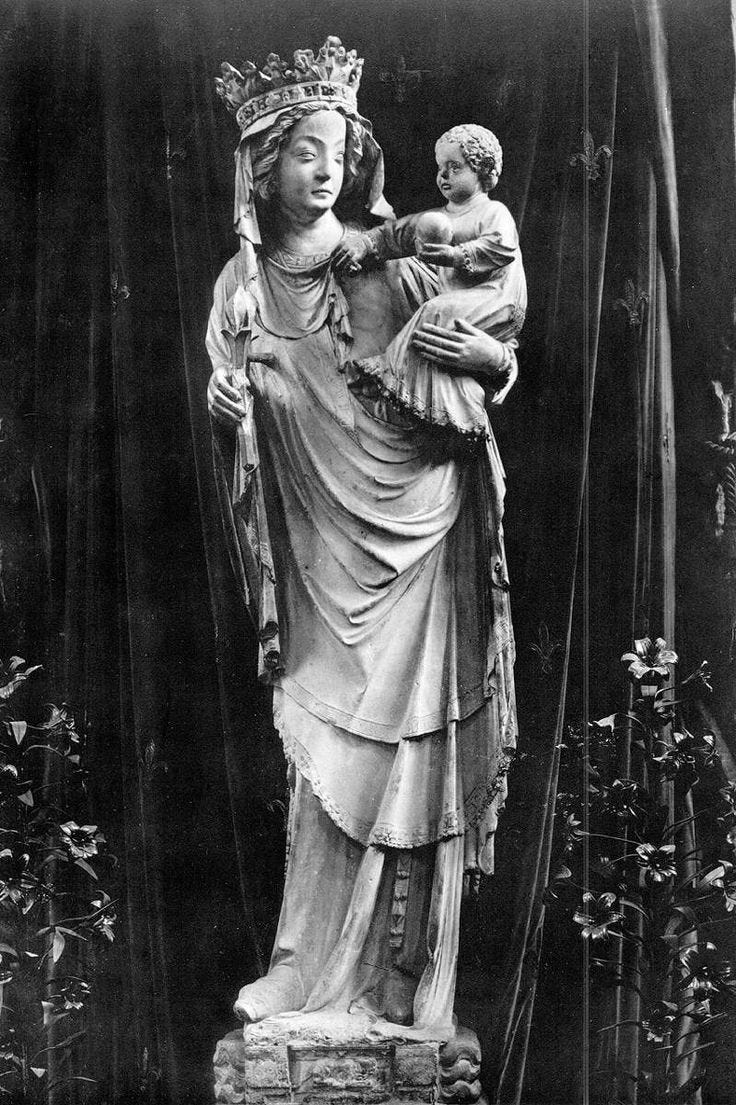Extinguishing the Olympic Torch: France's Hijab Ban and Its Impact on Women in Sports
How France's Decision Undermines Human Rights and Olympic Spirit
In 2016, Ibtihaj Muhammad made history as the first hijab-wearing woman to compete for the United States in the Olympics and won a medal while wearing it. Her victory inspired hijab-wearing athletes worldwide, showing them they could compete at the Olympic level. However, France's recent decision to ban Muslim women from wearing hijabs in the upcoming Olympics has sparked controversy and raised concerns about human rights and religious freedom.
Ibtihaj Muhammad, 2016 Olympics
The hijab has long symbolized faith, identity, and resistance. France's announcement to ban hijabs, purportedly to preserve cultural identity and liberate women from oppression, severely undermines basic human rights. Throughout history, head coverings have been esteemed across cultures and religions. Assyrian, Greek, Persian, Anglo-Saxon, and Anglo-Norman women wore veils, signifying status and dignity.
In Abrahamic religions, head coverings hold significance. Early Judaic texts praise them for modesty, while Christianity depicts figures like the Virgin Mary and Saint Thérèse of Lisieux with covered heads. Islam views the hijab as a way of life, symbolizing faith and dignity, without imposing penalties for non-compliance.
Virgin and Child by MEDIEVAL SCULPTOR placed at Cathedral of Notre Dame in Paris
Muslim women in positions of power historically wore head coverings, from Khadija, a successful businesswoman and wife of Prophet Muhammad, to Ayesha, a teacher and political figure. European history, including French rulers like Queen Nanthildis and Queen Alais d'Aquitaine, showcases leaders who chose modest head coverings, challenging notions of oppression.
European history also showcases women leaders who preferred modest head coverings. French women rulers like Regent Dowager Queen Nanthildis, Joint Ruler Queen Alais d'Aquitaine, and Regent Queen Isabeau Baverie, among others, are depicted with head coverings similar to the hijab. These women ruled with dignity and strength, challenging the notion that head coverings are oppressive.
Contrary to French claims, the hijab isn't exclusive to Islam or oppressive. It's deeply rooted in cultural and historical traditions, including France's own. France's ban not only erodes cultural and religious heritage but also suppresses women's expression and beliefs. Amnesty International's Anna Błuś rightly criticizes the ban for undermining gender equality at Paris 2024 Olympics and exposing underlying racial and gender discrimination in French sports.
The real offense isn't the hijab but the violation of women's freedom and dignity. France's ban regresses human rights progress, especially evident in Ibtihaj Muhammad's triumph. Her Olympic success shattered barriers, proving hijab-wearing women can excel in sports. France's ban, however, threatens to reverse such strides, perpetuating discrimination and hindering inclusivity in sports.
Ibtihaj Muhammad is a trailblazer, and this ban seeks to extinguish that trailblazing spirit. Eight years on, we should have seen many more hijab-wearing athletes at the Olympics, but this ban threatens to end the trail. It's a setback for inclusivity and a stark reminder of the challenges still faced in achieving true equality in sports and beyond.






Pretty sick. So wear a MAGA hat ladies and see how they like that!!!
This ban is so mindless, so offensive, so racist and sexist, so pathetically and blatantly patriarchal! I’ll be watching to see if anyone, ANYONE, among the Olympic athletes has the courage, dignity, and class to protest or speak out against this. Any single individual or group among the thousands of participants. This is beyond the pale.